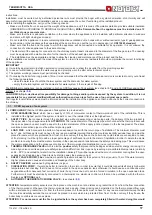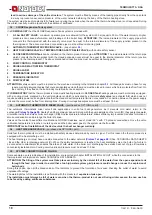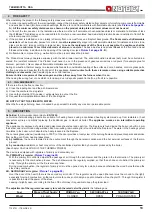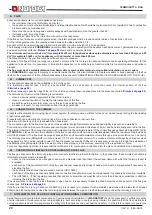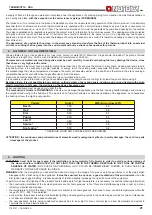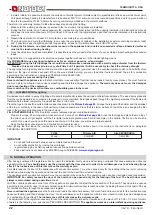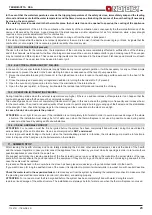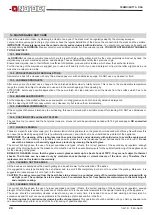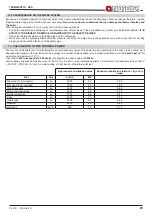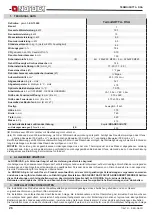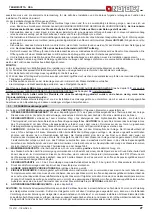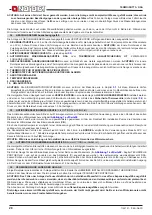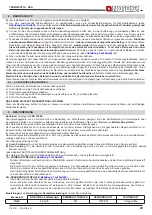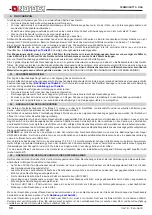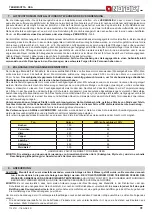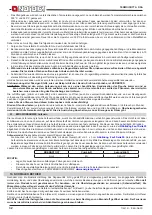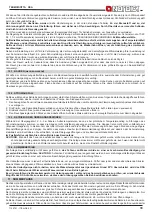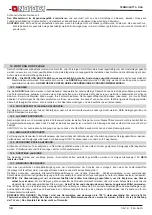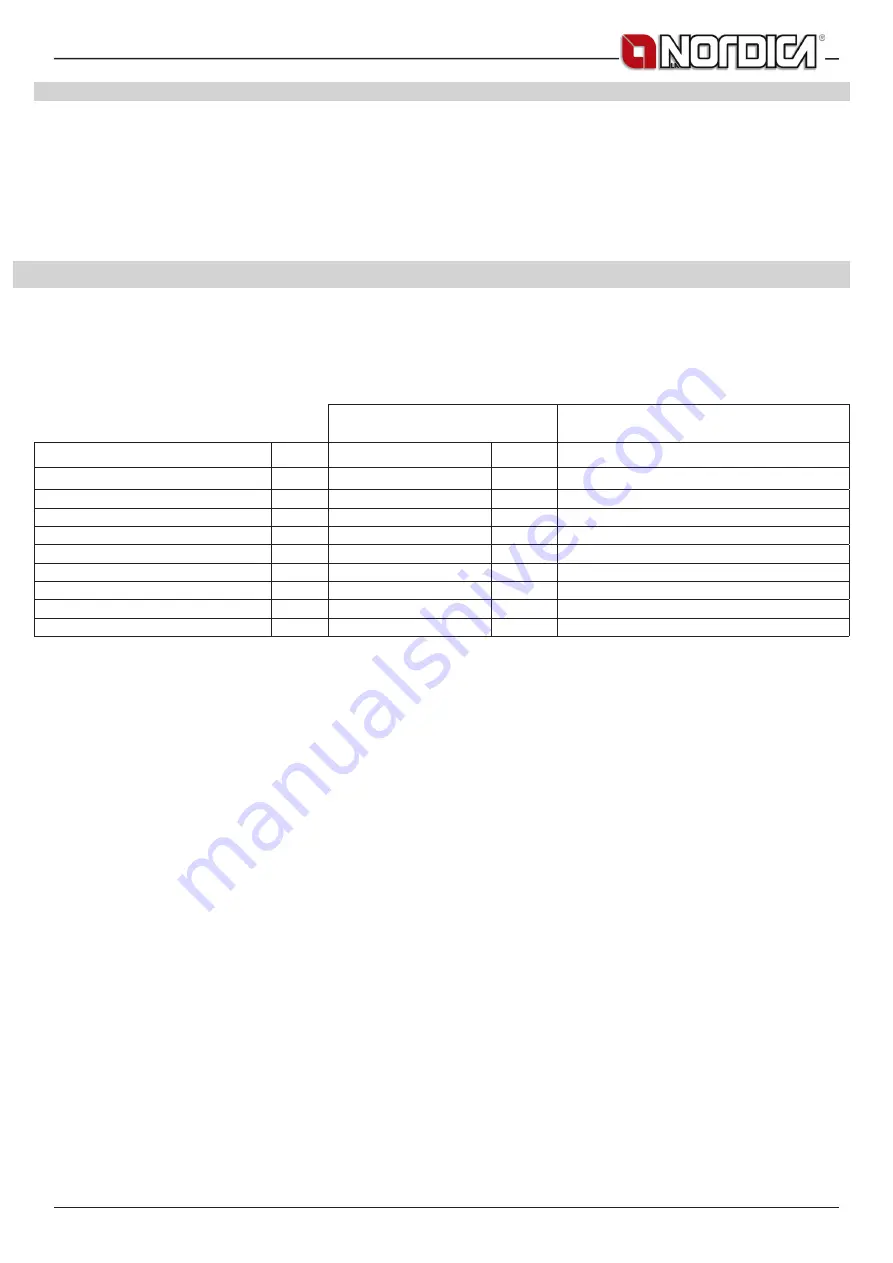
25
12.10. MAINTENANCE ON THE WATER SYSTEM
Excessive incrustation deposits on the inner walls of the hearth considerably reduce the efficiency of heat exchange; therefore, remove
these deposits using a steel brush whenever necessary.
Never use corrosive substances that can damage the thermo-fireplace and
the boiler.
With the system switched off, once a year carry out the following checks:
• Check the operation and efficiency of the blowdown and safety valves. If they are defective, contact your authorised installer.
IT IS
STRICTLY FORBIDDEN TO REMOVE OR TAMPER WITH THE SAFETY DEVICES.
• Check the thermal insulation of the filling pipe and the safety pipe.
• Make sure that the system is filled and under pressure, checking the water level in the expansion tank; also check that it is working
properly and check the efficiency of the safety pipe.
13. CALCULATION OF THE THERMAL POWER
There is not an absolute rule for calculating the correct necessary power. This power is given according to the space to be heated, but it
depends also largely on the insulation. On an average, the calorific value necessary for a properly insulated room is
30 kcal/h per m
3
(for
an external temperature of 0°C).
Given that
1 kW corresponds to 860 kcal/h
, it is possible to adopt a value of
38 W/m
3
.
Let’s suppose one wishes to heat a room of 150 m
3
(10 x 6 x 2.5 m) in an insulated apartment. In this case, it is necessary to have 150 m
3
x 38 W/m
3
= 5700 W or 5,7 kW. As main heating, a 8 kW device is therefore sufficient.
Approximate combustion value
Required quantity in relation to 1 kg of dry
wood
Fuel
Unit
kcal/h
kW
Dry wood (15% humidity)
kg
3600
4.2
1,00
Wet wood (50% humidity)
kg
1850
2.2
1,95
Wood briquettes
kg
4000
5.0
0,84
Brown coal briquettes
kg
4800
5.6
0,75
Normal anthracite
kg
7700
8.9
0,47
Coke
kg
6780
7.9
0,53
Natural gas
m
3
7800
9.1
0,46
Naphtha
L
8500
9.9
0,42
Electricity
kW/h
860
1.0
4,19
Summary of Contents for TermoISOTTA - DSA
Page 2: ......







